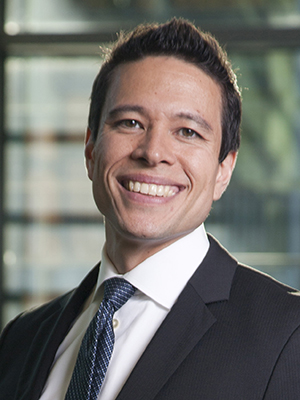Trauma and Truth: A Law and Neuroscience Perspective on Episodic Memory, Credibility and Asylum Law

Dr. Francis X. Shen, JD, PhD is a Professor of Law, McKnight Presidential Fellow, and faculty member in the Graduate Program in Neuroscience at the University of Minnesota, where he directs the Shen Neurolaw Lab, whose Lab motto is, “Every story is a brain story.” In fall 2020 he is a Florence Rogatz Visiting Professor of Law at Yale Law School, teaching Criminal Law. He is also Executive Director of the Massachusetts General Hospital Center for Law, Brain, and Behavior, an Instructor in Psychology at Harvard Medical School, and Senior Fellow in Law and Applied Neuroscience at the Petrie-Flom Center at Harvard Law School. Born and raised in St. Louis, MO, Dr. Shen received his B.A. from the University of Chicago, his J.D. from Harvard Law School, and his Ph.D. from Harvard University. Dr. Shen is building the new field of law and neuroscience, and conducts empirical, legal, and ethical research to examine how insights from neuroscience can make the legal system more just and effective. This includes a new project on neuroscience, memory, trauma, and asylum justice at the MGH Center for Law, Brain & Behavior. Dr. Shen has co-authored 3 books, including the first Law and Neuroscience casebook (Aspen, with Jones and Schall), with a 4th book currently under review. He also teaches and writes on artificial intelligence and the law.
About the talk: The success of an asylum claim relies, to a large degree, on the perceived credibility of an asylum seeker’s memory. Often the credibility assessments of judges and asylum officers turn on the consistency (or lack thereof) in an asylum seeker’s story. Asylum applicants will often recount their stories at multiple points in the legal journey, including immediately upon entry into the U.S.; in a subsequent written affidavit; and before an asylum officer or immigration judge. If inconsistencies or inaccuracies emerge, the asylum adjudicator often infers that the asylum seeker intends to deliberately mislead him or her. In this presentation, Dr. Shen will discuss a foundational, yet failed assumption, animating U.S. asylum law’s approach to credibility---that honest human memory is free of inconsistencies, and that those with histories of trauma are capable of error free autobiographical recall. Dr. Shen will discuss how memory science counsels a more nuanced approach to credibility, and how changes in asylum seekers’ narratives over time may not be due to deliberate deception but rather to the nature of human memory itself.
Sponsored by Spanish and Portuguese Studies, CLA Office of the Dean, Human Rights Program, and Institute for Advanced Study